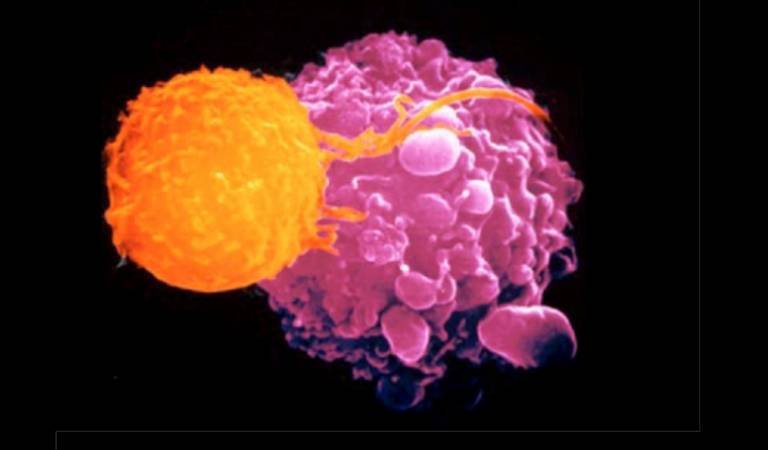UCL Institute of Immunity and Transplantation collaborates with Cell Medica to develop products to fight cancer
24 August 2016
UCL has signed a research collaboration with Cell Medica aiming to utilize UCL's novel T cell receptor (TCR) technology to generate leading-edge modified TCR products for the treatment of cancer.

The collaboration will accelerate the pioneering work performed at the UCL Institute of Immunity and Transplantation (IIT) with grant support from Bloodwise, Medical Research Council and National Institute for Health Research (NIHR).
The work is led by Professor Hans Stauss, Director of the IIT, and Professor Emma Morris, Director of the Infection, Immunity and Inflammation research theme at the NIHR University College London Hospitals Biomedical Research Centre, both based at the Royal Free Hospital.
T cell receptors are molecules found on the surface of T cells which recognize antigens expressed by cancer cells. TCR technology exploits the ability of TCRs to target both intracellular and cell surface antigens, providing an important mechanism to engineer immune cells to target tumors. The UCL TCR technology has the potential to produce strong expression of TCRs by the engineered T cells which is expected to improve their efficacy in fighting tumors.
Professor Hans Stauss said:
"This collaboration provides an exciting opportunity to move our TCR gene therapy technologies more effectively towards clinical application. We are grateful to the blood cancer charity Bloodwise, who have provided important long-term support for our work. The new collaboration with Cell Medica enables us to take full advantage of our pre-clinical research and rapidly develop novel TCRs for the treatment of patients with cancer"
Professor Emma Morris said:
"As a clinician treating patients with blood cancers, I am aware of the urgent need to develop more effective and less toxic therapies. Immunotherapy with gene-modified immune cells has enormous potential to transform the lives of cancer patients. It is truly exciting to be supported by Cell Medica to accelerate our progress in developing new therapies."
 Close
Close

